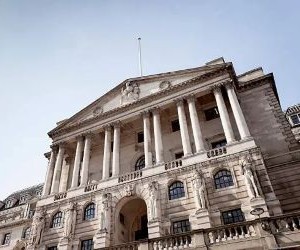WHAT ARE INVESTMENT FUND FEES
Learn about investment fund fees, how they affect your finances, and ways to reduce them. Your profitability will thank you!

Types of Fees
In the world of investment funds, fees are not exactly good news. They come in various disguises, often so well-hidden that you might need a special magnifying glass to spot them. But don't worry, we'll break them down for you here.
Subscription Fee
Let's say you're all excited to invest in a new fund. The moment you enter, you're already paying. This is the subscription fee, a charge you pay when acquiring shares in a fund. Is that a "Welcome"? Doesn't seem like it.
Management Fee
This is the fee you pay for the fund's "active management." Basically, for someone who is supposed to know how to play better than you on Wall Street. Ironically, sometimes the market ends up doing a better job. This fee is charged regardless of whether the fund makes or loses money.
Performance Fee
When the fund manages to exceed a certain level of profitability, your happiness costs you too! The performance fee is like the fund manager's consolation prize. That said, dear fund, surpass them first before cashing in.
Redemption Fee
And if you decide to leave, well, you pay for that too. The redemption fee is what you pay for withdrawing your money. Like breaking up with a partner and paying for the coffee one last time.
Detailed Scheme
The best way to understand these fees is to look at a real example. Suppose you've invested in a fund that charges the following:
2% subscription fee: For every 1,000 euros you invest, 20 euros go straight into the fund's pocket.
1% management fee: On the total value of the fund, 1% annually goes to the team managing it.
5% performance fee: If the fund's profitability exceeds 7%, you give them 5% of that extra gain.
3% redemption fee: If you decide to leave the fund, what you have left is reduced by 3%.
This information is designed to help you calculate if that investment is really worth it. After all, as they say on Reddit: "the right ROIs don't exist, only fees you don't see coming."
Impact on Profitability
Fees are somewhat like the stealthy thief of your potential earnings. You can invest with the hope that your money is working for you, only to realize it was working hard to pay fees. So, let's delve into how these charges really impact you.
Compound Effect of Fees
Think of the compound effect of fees as that growing hole in a bucket. Imagine it like this: each small fee takes away a fraction of your potential returns, the same fraction you could be doubling thanks to compound interest. Over time, fees can be the reason your dreams of becoming the next Warren Buffet drift a little further away.
Real Cases: Losses Due to Fees
Let's assume we have two investment funds with the same risk and strategy, but while one operates under a modest "1-2-3" on its fees (1% subscription, 2% management, 3% reimbursement), the other fund only charges 1% total distributed across its challenges. Which do you think will offer higher profitability, even if both achieve the same initial rate of return? Exactly, the one with lower fees.
Long-Term Impact
The real challenge arises when fees sit on your investments long-term, behaving like an annoying antivirus software you can't slow down. If you keep your investment for 20 years, pay your 2% annual fees, and ultimately more than 30% of your potential gains are gone. It's like putting brakes on the Bugatti of your investments.
Importance of Proper Fund Management
Adequate management of your funds involves opting for those with the lowest possible fees. But beware, low fees do not always imply better results. The key is the balance between cost and expected profitability. Why? Because, like in restaurants, sometimes cheap can be expensive if you don’t pay attention to quality.
How to Reduce Costs
Reducing costs on commissions is easier than learning to dance salsa... well, for some. Still, save those hard-earned cents. Here we will detail strategies to minimize the bleeding.
Opt for Index Funds
Index funds are the Robin Hood of investments. They have lower fees than active investment funds, mainly because they don't care if the stock market has a bad hair day on a Monday morning. Instead, they replicate market behavior, minimizing associated costs.
Take Advantage of Low-Fee Plans
Some platforms offer reduced rates if you meet certain requirements, such as the minimum investment. For example, if you can commit to investing $10,000, you might qualify for exceptions or reductions in fees. As they say, where there is a will, there's a website FAQ with hidden discounts.
At the end of the day, as Milton Friedman said, "there's no such thing as a free lunch." Commissions will always be there in some form, but learning to manage them can be the difference between a good trading outcome and one that leaves much to be desired.









